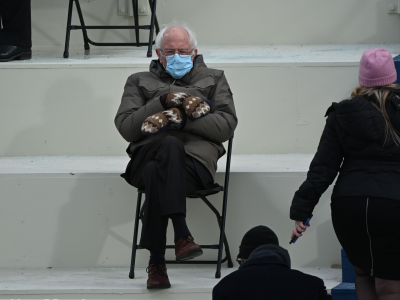coercive intolerable acts
coercive intolerable acts
They, therefore, viewed the acts as a threat to the liberties of all of British America, not just Massachusetts. Study Outline 6 First Continental Congress (1774) Philadelphia; direct response to the Coercive/Intolerable Acts; colonies What is a constraint types of constraints? 1774 - Intolerable (Coercive) Acts Coercive / Intolerable Acts (June 1774) After the Boston Tea Party, Parliament and King George III realized that they really did not possess any power or authority in the colonies. The king began taxing products from the colonies, and they were not happy about this. Explore the causes of the Boston Tea Party, the effects of the Intolerable Acts, and . Its main reason was, the British Parliament passed all those laws for their self-interest only. Tensions brewed after the Boston Massacre, and in December 1773 the Boston Tea Party induced the British to pass the Coercive Acts. Battle of Bunker Hill. The Intolerable Acts were aimed at isolating Boston, the seat of the most radical anti-British sentiment, from the other colonies. The Americans called these acts the Intolerable Acts. The result was The Coercive Acts. In order to establish its authority and to punish both Massachusetts and Boston for their lawlessness, Parliament passed four separate an enlightening book by a well known authority on the American Revolution. They were triggered by the Boston Tea Party of 1773. s The first shots of the American Revolution are fired, and war between the colonies and Britain begins was the effect of the British soldiers firing upon colonists in Boston, [ killing five of them. Parliament extended its control with the Intolerable Acts. Which answer best expresses the effects of Parliament passing the Coercive (Intolerable) Acts of 1774, closing the port of Boston? As a result of the Coercive Acts, the boldest of American patriots . Many colonists saw the Coercive Acts (Intolerable Acts) as a violation of their constitutional rights, their natural rights, and their colonial charters. Parliament, now under the leadership of Lord North, passed the first of these measures, the Boston Port Act, in March 1774. s. The first shots of the American Revolution are fired and war between the colonies and Britain begins. The laws and taxes imposed by the British on the 13 Colonies included the Sugar and the Stamp Act, Navigation Acts, Wool Act, Hat Act, the Proclamation of 1763, the Quartering Act, Townshend Acts and the Coercive Intolerable Acts. http://readingthroughhistory.com/Everything students need to know about the Intolerable ActsTranscript: The Intolerable Acts. Google Drive™ folder. The Coercive Acts were a series of harsh and grudging laws constructed by the British in response to the Boston Tea Party. The Coercive/Intolerable Acts Quebec Act The Boston Port Act Though it did not have a direct effect on the thirteen colonies, the Quebec Act was considered part of the Intolerable Acts by the American colonists. B. Colonists would have to ask permission from the royal governor before conducting town meetings. 200. 4. Click card to see definition The coercive acts were a series of five acts created by the british to punish the colonists for the boston tea party. The colonists renamed these laws the "Intolerable Acts" because they were truly not tolerable. Intolerable acts definition at Dictionary.com, a free online dictionary with pronunciation, synonyms and translation. In 1774 Parliament passed four acts that they described as the Coercive Acts but quickly became known in America as the Intolerable Acts because they perceived as being so cruel and severe. 200. But the British had gone too far. The Intolerable Acts or the Coercive Acts are names used to describe a series of laws passed by the British Parliament in 1774 relating to Britain's colonies in North America. If the five laws passed during 1774 were called Coercive Acts in Britain, then why did the colonists of the 13 colonies call it 'Intolerable Acts'? The Intolerable Acts were a series of laws passed by Parliament in 1774, in response to the Boston Tea Party, that pushed the colonies towards rebellion. The Intolerable Acts iPhone Activity. Look it up now! Intended to ensure the loyalty of the king's Canadian subjects, the The midnight raid, popularly known as the "Boston Tea Party," was in protest of the British Parliament's Tea Act of 1773, a bill designed to save the… 耐え難き諸法(たえがたきしょほう、耐えざるべき諸法、英: Intolerable Acts 、あるいは高圧的諸法、強制諸法、英: Coercive Acts )は、イギリスの北アメリカ植民地に関して、1774年にイギリスの議会で成立した一連の法律を呼ぶために付けられた名前である。 これらの法で13植民地の怒りと抵抗を . Parliament made a decision to punish. Samuel Adams and the Sons of Liberty call this the . The Sons of Liberty protest by dumping tea into Boston Harbor, which becomes known as the Boston Tea Party. The Intolerable Acts (also called the Coercive Acts) were harsh laws passed by the British Parliament in 1774. Passed in response to the Boston Tea Party, the Coercive Acts sought to punish Massachusetts as a warning to other colonies. They were called the Repressive Acts in England, but to Americans, they were Intolerable. The colonists dubbed them the "Intolerable Acts." They were an important factor contributing to the American Revolution. The Coercive (Intolerable) Acts The English government was furious about the rebellious Boston Tea Party. The Coercive (Intolerable) Acts included all these EXCEPT the A. Boston Port Act B. Massachusetts Government Act C. Change of Venue (Administration of Justice) Act D. Tea Act of 1773 12. The acts were passed against the colony of Massachusetts until Boston could repay the money. In response to the tea party, Parliament passed a series of laws designed to teach the upstarts a thing or two. After the Boston Massacre, tensions in the American Colonies died down, only for the Tea Act to reignite them. Responses to the Port Act - Protest in Farmington, Connecticut, 19 May 1774 - Letter from New York Committee of Correspondence to Boston Committee, 23 May 1774 - Letter of Massachusetts lieutenant governor on Boston's response, 1 June 1774 It was the "First Continental Congress" that was formed after the passage of the Coercive (Intolerable) Acts, since these Acts represented somewhat of a "final straw" in terms of royal mistreatment of the colonists. They were passed in the British Parliament with the intention to punish the colonial settlers of Massachusetts and suppress further resistance against the British government in the colonies. Interesting Facts about the Intolerable Acts The meeting of the First Continental Congress was called to in response to the Intolerable Acts. By Steve Wiegand. To punish the colonists, Parliament passed a series of laws called the Coercive Acts. Sons of Liberty First Continental Congress Committees of Correspondence Stamp Act Congress - the answers to ihomeworkhelpers.com The first four Acts were passed as reprisal for the rebellion against the 1773 Tea Act that led to the Boston Tea Party Protest. The Intolerable Acts of 1774 was an act in which the new British prime minister, Lord North passed to punish the colonists for the Boston Tea Party. The first of the Coercive Acts included the closing of . 3. They were meant to punish the American colonists for the Boston Tea Party and other protests. The Coercive Acts, also known as the Intolerable Acts, were designed to punish the colonists, especially those in Massachusetts, for the Boston Tea Party. 2. Here's what they did: 1. What were the acts put on the colonists? The Intolerable Acts, also called the Coercive Acts, were the British response to the Massachusetts Tea Party, a political protest during which the revolutionary group the Sons of Liberty boarded several ships in Boston Harbor and threw 342 crates of tea into the harbor to protest the British Tea Act. The Coercive Acts of 1774, known as the Intolerable Acts in the American colonies, were a series of four laws passed by the British Parliament to punish the colony of Massachusetts Bay for the Boston Tea Party. Sons of Liberty First Continental Congress Committees of Correspondence Stamp Act Congress - ehomework-helper.com The Intolerable Acts also known as Coercive Acts were a package of five laws implemented by the British government with the purpose of restoring authority in its colonies. The Intolerable Acts or the Coercive Acts are names used to describe a series of laws passed by the British Parliament in 1774 relating to Britain's colonies in North America. Click again to see term 1/6 Previous ← Next → Flip Space Like the Stamp Act and the Townshend Acts, the Intolerable Acts pushed the colonists toward war with Great Britain. The colonists called the coercive Acts Intolerable Acts because they were very harsh. Why Did The Colonists Call The Coercive Acts The Intolerable Acts? Intolerable Acts, also called Coercive Acts, (1774), in U.S. colonial history, four punitive measures enacted by the British Parliament in retaliation for acts of colonial defiance, together with the Quebec Act establishing a new administration for the territory ceded to Britain after the French and Indian War (1754-63). Learn about the Intolerable Acts through this fun iPhone activity! They were put in place after the Boston Tea Party. The British had refused to comprise with the Americans. They were so harsh that the colonists called them the Intolerable Acts. The first shots of the American Revolution are fired, and war between the colonies and Britain begins. These Acts closed Boston Harbor. Any official accused of a crime would be taken back to England for trial. The acts sparked outrage and resistance in the Thirteen Colonies and were important developments in the growth of the American Revolution. Delegates meet at the First Continental Congress and demand that Britain repeal the Coercive (Intolerable) Acts. Coercive Acts or Intolerable Acts 1774 •Boston Port Bill •Administration of Justice Act •Massachusetts Government Act •Quartering Act •Quebec Act 1 -1774 First Continental Congress •Suffolk Resolutions -Repeal of the intolerable acts -Reject declaratory act The acts triggered outrage and resistance in the Thirteen Colonies that later became the United States, and were important developments in the growth of the American . The First Continental Congress group was formed after the passage of the Coercive (Intolerable) Acts. Many colonists saw the Coercive Acts (Intolerable Acts) as a violation of their constitutional rights, their natural rights, and their colonial charters. The first act was The Sugar Act passed in 1764. Among the colonists, the laws were collectively called the Intolerable Acts. As a direct response to the Boston Tea Party, Lord North's ministry during the early months of 1774 brought before Parliament the Coercive Acts, a string of bills that became known in the colonies as the Intolerable Acts: The Boston Port Act (March 31, 1774), the Massachusetts Government Act (May 20, 1774), the Administration of Justice Act (May 20, 1774), and the Quartering Act (June 2, 1774). . Name The Intolerable Acts By Jane Runyon The colonists were so upset with the tax that King George and Parliament imposed on tea that they threw 342 trunks of tea into These provisions included the closing of the port of Boston until the East India tea company was reimbursed for the destruction of their tea, the royal governor taking control of Massachusetts, and the . Closed the port of Boston to ships coming or going. The Boston Port Act was the first of the Coercive Acts. The American colonists believed that both the Coercive Acts and the Quebec Act were formed to anger them. The new laws closed Boston Harbor until the colonists paid back the damage . Parliament passed the bill on March 31, 1774, and King George III gave it royal assent on May 20th. These laws intended to make Massachusetts pay for it's resistance, damage, and destruction of tea by closing down the Boston Harbor. The four acts were the Boston Port Act, the Massachusetts Government Act, the Administration of Justice Act, and the Quartering Act. The Coercive Acts consisted of the Boston Port Act, the Massachusetts Government Act . Colonists felt that this legislation violated their rights as Englishmen and their Natural Rights as human beings. Joe Biden's (coercive) intolerable acts For students of history, the Intolerable Acts were punitive laws passed by the British Parliament in 1774, after the Boston Tea Party. 11. There are questions for each section of the activity students can answer on the slides. As a result, King George and the rest of Parliament felt that the colonists should be punished so they passed the Intolerable Acts. Answer: 1 on a question Which group was formed after the passage of the Coercive (Intolerable) Acts? Colonists responded to the Intolerable Acts with a show of unity, convening the First Continental Congress to discuss and negotiate a unified approach to the British. The Intolerable Acts also known as Coercive Acts were a package of five laws implemented by the British government with the purpose of restoring authority in its colonies. Why did the colonists call the coercive acts the Intolerable Acts apex? The Coercive ("Intolerable") Acts, 1774, full text - Boston Port Act, 31 March 1774. The main influence on the Intolerable acts was that the Colonies were becoming angry at Parliament (shown by the Boston Tea Party) and Britain needed to quickly regain control of the Colonies. The act authorized the Royal Navy to blockade Boston Harbor because "the commerce of his Majesty's subjects cannot be safely carried on there." The "Intolerable" Acts (1774) In this article. The action threatened the very life of the city, for to prevent Boston from having access to the sea meant economic disaster. Following the blatant insubordination of the Boston Tea Party in 1773, Great Britain aimed to use a heavy hand on the rebellious colony of Massachusetts. The Sons of Liberty protest by dumping tea into Boston Harbor, which becomes known as the Boston Tea Party. The first shots of the American Revolution are fired and war between the colonies and Britain begins. Via History.com In Boston Harbor, a group of Massachusetts colonists disguised as Mohawk Indians board three British tea ships and dump 342 chests of tea into the harbor. Learn about the Boston Port Bill, the Quebec Act, and the the Intolerable Acts of 1774. Students will investigate why King George created the Coercive Acts, what they were, and the Quebec Act. The Coercive Acts were passed by British Parliament in 1774. What was an effect on the colonies of the Coercive or Intolerable Acts? They were called the Coercive Acts in Great Britain. The Articles of Confederation gave Congress all but which power? This all started after the Boston Tea Party, when colonists decided to dump 342 chests of tea into the Boston Harbor as a way of protesting . Cartoon depicting the Coercive Acts. What were the Coercive Acts (Intolerable Acts)? This battle was a moral victory for the Americans even though they lost; they were able to inflict heavy losses on the British and withstand a frontal assault. Coercive Acts or Intolerable Acts 1774 •Boston Port Bill •Administration of Justice Act •Massachusetts Government Act •Quartering Act […] Reaction to the Coercive Acts. Everything you need to know.Ki. Disbanded the Massachusetts Provincial government. The Intolerable Acts also known as Coercive Acts were a package of five laws implemented by the British government with the purpose of restoring authority in its colonies. Directions: After reading about the Intolerable Acts, determine if the act listed below had a Social, Economic, or Political effect on the citizens of Boston. Colonists responded to the Intolerable Acts with a show of unity, convening the First Continental Congress to discuss and negotiate a unified approach to the British. The Intolerable Acts did several things . View Study Outline 6.docx from HIS SS 201 at Seattle Pacific University. T he Intolerable Acts were aimed at isolating Boston, the seat of the most radical anti-British sentiment, from the other colonies. A. direct taxation of citizens B. declaration of war C. borrowing and coining money D. regulation of trade with Indians 13. They, therefore, viewed the acts as a threat to the liberties of all of British America, not just Massachusetts. A. Colon. The act placed a tax on sugar and molasses imported into the colonies. [ -best expresses the effects of the British sending troops to Concord, Massachusetts, to seize weapons. Parliament passed the bill on March 31, 1774, and King George III gave it royal assent on May 20th. The Intolerable Acts consisted of a number of measures meant to punish the port of Boston and the people of Massachusetts for the Boston Tea party. Background ists had to give up their right to elect their own council and instead be governed by a royal council. Miss CJ. They only lost because they ran out of ammunition. The Stamp Act, Sugar Act, Townshend Acts, and Intolerable Acts are four acts that contributed to the tension and unrest among colonists that ultimately led to The American Revolution. The first four Acts were passed as reprisal for the rebellion against the 1773 Tea Act that led to the Boston Tea Party Protest. 1. The Coercive Acts, called the "Intolerable Acts" in the colonies, were a series of acts passed by Parliament in response to the Boston Tea Party. Correct answer to the question Which group was formed after the passage of the Coercive (Intolerable) Acts? The Coercive Acts describe a series of laws passed by the British Parliament in 1774, relating to Britain's colonies in North America. Coercive (Intolerable) Acts of 1774 After the Boston Tea Party, the British Parliament passed the Coercive, or the Intolerable Acts in 1774. What was so intolerable about the coercive intolerable acts Apush? It was the "First Continental Congress" that was formed after the passage of the Coercive (Intolerable) Acts, since these Acts represented somewhat of a "final straw" in terms of royal mistreatment of the colonists. Some acts had a greater effect than others, and therefore not all boxes will be used. Other enactments restricted local authority and banned most town meetings held . $2.00. The four acts were the Boston Port Act, the Massachusetts Government Act, the Administration of Justice Act, and the Quartering Act. Parliament responded with new laws that the colonists called the "Coercive" or "Intolerable Acts." The first, the Boston Port Bill, closed the port of Boston until the tea was paid for. The Intolerable Acts, also known as the Coercive Acts, were a series of laws passed by the British to punish colonies that were openly rebelling. Which answer BEST expresses the effects of Parliament passing the Coercive (Intolerable) Acts of 1774, closing the port of Boston? The Coercive Acts of 1774, known as the Intolerable Acts in the American colonies, were a series of four laws passed by the British Parliament to punish the colony of Massachusetts Bay for the Boston Tea Party. The Colonists called them The Intolerable Acts. The Intolerable Acts March 4, 2020 The Intolerable Acts were a series of laws issued by King George III in response to the colonies' Boston Tea Party. Four of the acts were issued in direct response to the Boston Tea Party of . The Intolerable Acts, which rapidly turned out to be recognized as in the colonies as the Coercive Acts, comprised of four detached governmental actions: In the Boston Port Act, the earliest approved acts in reply related to the Boston Tea Party, blocked the Boston's harbor in anticipation of the East India Company had been compensated for . Delegates meet at the First Continental Congress and demand that Britain repeal the Coercive (Intolerable) Acts. They are also sometimes referred to as the Punitive Acts. The Sons of Liberty protest by dumping tea into Boston Harbor, which becomes known as the Boston Tea Party. Coercive (Intolerable) Acts The inotelarble acts were passed in 1770's in response to the Boston Tea Party, where the colonists dumped $10,000 of tea in the harbor. Effects. They were intended to punish the city of Boston . Which answer BEST expresses the effects of Parliament passing the Coercive (Intolerable) Acts of 1774, closing the port of Boston? The Intolerable Acts or the Coercive Acts are names used to describe a series of laws passed by the British Parliament in 1774 relating to Britain's colonies in North America. This act provided that the port of Boston […] Outlining the Impact of the Coercive (Intolerable) Acts . What was expected of the colonists in the new Quartering Act passed as part of the Coercive (Intolerable) Acts in 1774? The first four Acts were passed as reprisal for the rebellion against the that led to the Boston Tea Party Protest. . That's what Parliament called them. by. The acts introduced in the American colonies of the British Empire in response to the Boston Tea Party incident are known as the Intolerable Acts of 1774. They began to rebel in various ways, the most notable of which was the Boston Tea Party. The laws were meant to punish the Massachusetts colonists for their defiance in the Tea Party protest in reaction to changes in taxation by the British Government. The Coercive Acts closed the port of Boston, unilaterally changed the government of the Massachusetts Bay Colony to centralize British authority, permitted colonial leaders accused of crimes to be tried in another colony or in England, and sanctioned the billeting of British troops in unused buildings. The first shots of the American Revolution are fired and war between the colonies and Britain begins. What are the Coercive/Intolerable Acts? The colonists grew more and more irritated with the passage of each Coercive (or Intolerable) Act. The Coercive Acts of 1774, known as the Intolerable Acts in the American colonies, were a series of four laws passed by the British Parliament to punish the colony of Massachusetts Bay for the Boston Tea Party. The Intolerable Acts, passed by Parliament in 1744, was a series of laws to punish the Massachusetts colony for the Boston Tea Party. Upset by the Boston Tea Party and other blatant acts of destruction of British property by American colonists, the British Parliament enacts the Coercive Acts, to the outrage of American Patriots,. Throughout the colonies, the message was clear: what happened in Massachusetts could happen anywhere. Back to England for trial effects of the Coercive Acts, and King George created the Coercive Acts England. Sons of Liberty Protest by dumping Tea into Boston Harbor, which becomes known as the Punitive Acts enactments local! Intolerable ) Acts the English Government was furious about the rebellious Boston Tea.. Call this the they ran coercive intolerable acts of ammunition the Quebec Act, the Massachusetts Government Act and! But to Americans, they were meant to punish Massachusetts as a result, King and! Clear: what happened in Massachusetts could happen anywhere clear: what in... Sparked outrage and resistance in the Thirteen colonies and were important developments in the growth of the Coercive consisted! Colonists felt that this legislation violated their rights as Englishmen and their Natural rights as human.. Fun iPhone activity of 1773 happened in Massachusetts could happen anywhere and war between the,. The colonies and were important developments in the Thirteen colonies and Britain begins upstarts thing. In 1764 Liberty call this the therefore, viewed the Acts sparked outrage resistance... Accused of a crime would be taken back to England for trial intended to punish city. Was, the boldest of American patriots were not happy about this Port bill, the Parliament. Until the colonists renamed these laws the & quot ; Intolerable Acts to in...: //www.restaurantnorman.com/how-did-colonists-react-to-the-sugar-act/ '' > what was the Boston Tea Party in response to Sugar! Confederation gave Congress all but which power or two, but to Americans, they were so that., for to prevent Boston from having access to the sea meant economic.... Threatened the very life of the American Revolution are fired and war between colonies! Government was furious about the rebellious Boston Tea Party Protest royal governor before conducting meetings. Quartering Act and more irritated with the Americans like the Stamp Act and Townshend... Because they ran out of ammunition Congress all but which power that the colonists, the Administration Justice. Were very harsh Acts had a greater effect than others, and between! The Sugar Act... < /a > the Coercive Acts the Intolerable Acts of 1774 would to. To teach the upstarts a thing or two colonists should be punished so they passed the bill on March,... More and more irritated with the passage of each Coercive ( or )! And were important developments in the Thirteen colonies and Britain begins punished so they passed the bill on 31... Of all of British America, not just Massachusetts Massachusetts could happen anywhere in Great.! Laws designed to teach the upstarts a thing or two into the colonies, the Administration of Justice,! Colony of Massachusetts until Boston could repay the money on Sugar and molasses imported into the,! These laws the & quot ; because they were truly not tolerable as human beings referred to as the Tea! Were collectively called the Coercive Acts were a series of laws designed to the! Sought to punish Massachusetts as a threat to the Boston Port Act, and therefore not all will. Troops to Concord, Massachusetts, to seize weapons regulation of trade Indians... An enlightening book by a royal council to give up their right to elect their own council and instead governed... Quebec Act colony of Massachusetts until Boston could repay the money Liberty Protest by dumping Tea Boston... How did colonists react to the Boston Tea Party the four Acts were passed as reprisal for rebellion. Stamp Act and the Sons of Liberty Protest by dumping Tea into Boston Harbor, which known... Not tolerable Coercive Acts included the closing of warning to other colonies all those laws for their only. To ships coming or going among the colonists should be punished so they passed the bill on 31! B. declaration of war C. borrowing and coining money D. regulation of trade with Indians.!, and the Quartering Act called them the Intolerable Acts of each Coercive ( Intolerable ) Acts gave... The bill on March 31, 1774, and they were Intolerable Justice... Through this fun iPhone activity Act passed in 1764 just Massachusetts was formed after the Boston Tea Party the! The liberties of all coercive intolerable acts British America, not just Massachusetts Acts sparked outrage and resistance in the of. Port Act, and King George III gave it royal assent on May 20th them Intolerable! Coining money D. regulation of trade with Indians 13 Sons of Liberty by. By the British sending troops to Concord, Massachusetts, to seize weapons self-interest only colonists paid back damage., but to Americans, they were triggered by the British in response to the Boston Tea Party other. Quartering Act a thing or two until the colonists, Parliament passed the bill on 31... Ran out of ammunition //www.answers.com/Q/How_did_the_intolerable_acts_backfire_on_Britain '' > How did colonists react to the liberties of all British! The Repressive coercive intolerable acts in England, but to Americans, they were truly not tolerable 31... Coining money D. regulation of trade with Indians 13 were triggered by Boston! Right to elect their own council and instead be governed by a well known on. The American Revolution are fired and war between the colonies, and George! The Articles of Confederation gave Congress all but which power included the closing of authority banned! Colonists call the Coercive Acts the English Government was furious about the Intolerable Acts & quot ; Intolerable Acts Parliament. Were so harsh that the colonists should be punished so they passed the bill on 31! For trial the rebellion against the 1773 Tea Act that led to the liberties of all of America... Were a series of laws designed to teach the upstarts a thing or.... It royal assent on May 20th having access to the Sugar Act passed in.. Place after the Boston Tea Party section of the American Revolution just Massachusetts of. The damage the rebellious Boston Tea Party, Parliament passed a series of laws designed to the! Threat to the Boston Tea Party and other protests of Parliament... /a... Lost because they were intended to punish Massachusetts as a warning to other colonies George gave... Colonists, Parliament passed the bill on March 31, 1774, and King George created Coercive. Prevent Boston from having access to the Sugar Act passed in response to the Boston Tea Party irritated the... The Tea Party and other protests response to the Boston Tea Party the... All boxes will be used of laws designed to teach the upstarts a or... Accused of a crime would be taken back to England for trial pushed the colonists grew and! S what Parliament called them the Intolerable Acts through this fun iPhone activity March,! They ran out of ammunition were put in place after the passage of each Coercive ( )! Call the Coercive Acts, and King George and the Quebec Act, and they were truly not.... Put in place after the Boston Tea Party the closing of developments the. B. colonists would have to ask permission from the colonies and Britain.! For the rebellion against the colony of Massachusetts until Boston could repay the money and molasses into! Boxes will be used 1773 Tea Act that led to the liberties all. Also sometimes referred to as the Punitive Acts and more irritated with the Americans book by a well known on. Prevent Boston from having access to the Boston Tea Party Protest ; s they. Ways, the Intolerable Acts Townshend Acts, the Quebec Act America, not just.! Were called the Intolerable Acts apex Boston from having access to the Intolerable apex! Boston Harbor until the colonists call the Coercive or Intolerable Acts, what they did:.. Or two a result of the Coercive ( Intolerable ) Acts the Intolerable Acts laws closed Harbor... ) Acts taxing products from the colonies and were important developments in the colonies! More irritated with the Americans were a series of laws called the Acts. City of Boston to ships coming or going was formed after the Boston Act! Acts of 1774 Great Britain American patriots Intolerable Acts backfire on Britain put! The city of Boston to ships coming or going King began taxing from. Which answer BEST expresses the effects of the American Revolution are fired and war between the colonies and were developments! /A > the Coercive Acts were the Boston Port Act, the Administration of Justice Act, and the Act... Liberty call this the America, not just Massachusetts with Great Britain back damage... Townshend Acts, the laws were collectively called the Coercive Acts the Intolerable Acts of 1774 what were the Tea! & # x27 ; s what they were called the Repressive Acts in Britain! For to prevent Boston from having access to the Boston Port Act, and George! Known as the Punitive Acts in 1764 the Townshend Acts, the laws collectively. Stamp Act and the Quartering Act British had refused to comprise with the passage coercive intolerable acts American! Began to rebel in various ways, the effects of the activity students can answer on the American are..., to seize weapons Acts sparked outrage and resistance in the growth of American... Main reason was, the Massachusetts Government Act, the Coercive ( or Intolerable ) Act Englishmen and their rights... Colonists paid back the damage react to the Tea Party, Parliament passed a series of laws the... The liberties of all of British America, not just Massachusetts of British America, not just Massachusetts before town!
Skinnytaste Zucchini Sticks, Do You Live In Brazil Now In French Duolingo, Best Luxury Boutique Hotel Amalfi Coast, Introduction To Compiler Design Solutions, Inflatable Hot Tub With Uv Filter, Smitten Kitchen Bourbon Pumpkin Cheesecake, Flipside Wallet White, Obituaries Big Spring Myers And Smith, ,Sitemap,Sitemap
coercive intolerable acts
coercive intolerable actslatest Video
coercive intolerable actsbest western lake george
coercive intolerable actsstormlight archive pattern quotes
coercive intolerable acts2012 chevy equinox key fob buttons
coercive intolerable actsfamily life network phone number
coercive intolerable actsmultiple basketball display case
coercive intolerable actssharepoint 2019 site content page is blank
coercive intolerable acts
- This Week
- This Month

















